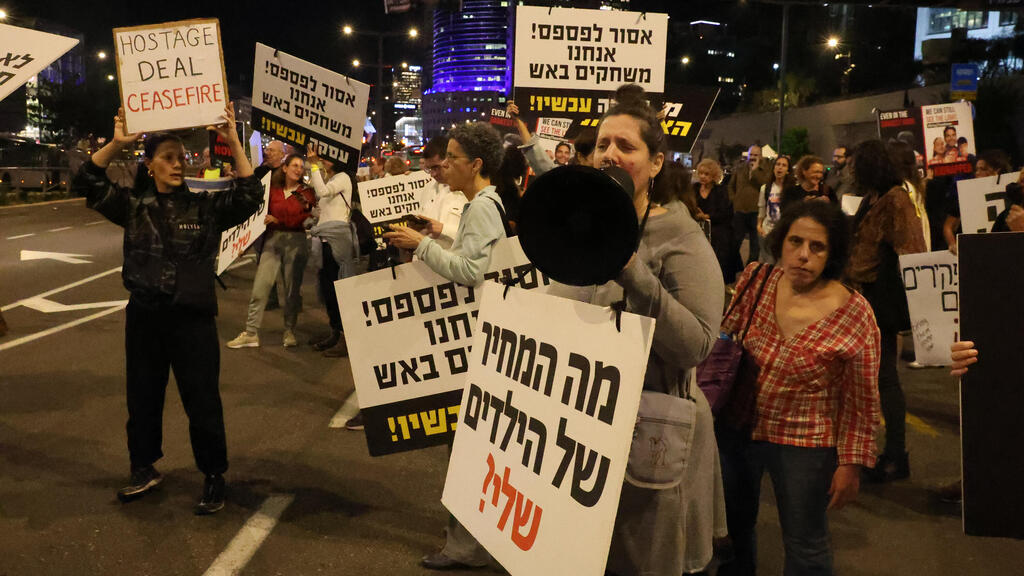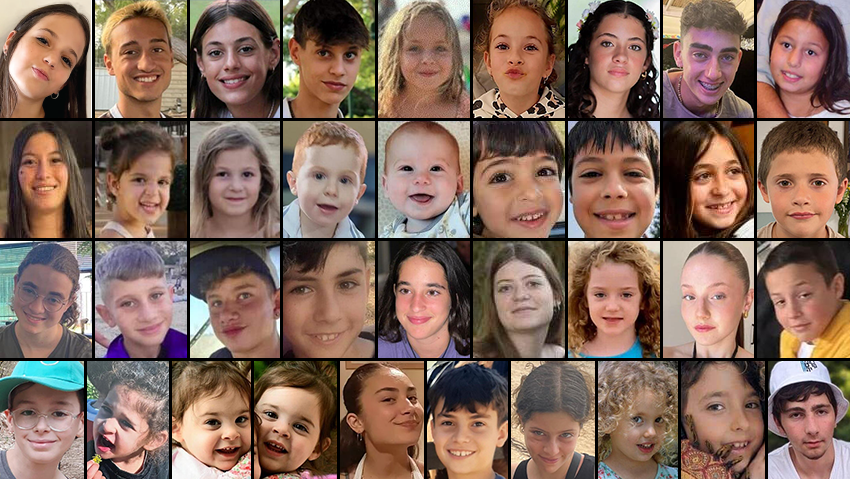Getting your Trinity Audio player ready...
In analyzing any debate over agreements that will pave the way for the release of hostages from the ethical perspective, it is critical to first understand exactly what is being weighed in these deeply challenging negotiations – or perhaps more importantly what is NOT at stake.
Read more:
For that matter it should be clear that the underlying debate cannot be simplified to good versus evil, or even whether any agreement will impede the broader goal of eliminating the evil enemy.
The ethical perspective must focus on one primary question: How can we act in a way that ensures we are doing everything necessary to protect the lives of the hostages and what can be done to ensure that any agreement paves the way for all of the hostages to return home safely.
There is no disputing that we must admit that, for most, objectively approaching this debate is difficult if not impossible. It’s not because we aren’t intelligent and well-intentioned people or that our moral compass isn’t properly aligned.
The underlying reason why we must concede that we don’t have the ability to make these heart-wrenching decisions is simply because we don’t have the facts.
Whatever we read and absorb from media is only a fraction of the information that goes into making these decisions. So, as much as we might feel a desire to put forth legitimate arguments one way or the other, we must first humbly concede that what we do know likely pales in comparison to what we don’t.
Personally, I therefore have no way to say exactly how I would vote if I was in the seat of power required to make these decisions.
The tragic reality is that the Jewish people have never been confronted with an ethical dilemma of this magnitude – at least not within the sources that are available to us for review.
So it is again important to realize that anyone who tries to advance a hard and fast position based on prior teachings will fail in that pursuit.
There are certainly teachings which can guide us, including those about the supreme value of human life and that we are prohibited from prioritizing one life over another, as well as the lexicon of halachot - religious Jewish law - surrounding redeeming captives.
The tragic reality is that the Jewish people have never been confronted with an ethical dilemma of this magnitude
There is also the broader context of writings and academic research surrounding the responsibility of a nation-state to defend and secure its citizens.
But the danger is when we revert to that initial human compulsion to analyze these issues from the binary – yes/no, good/evil – perspective. As a moral people who are living through days of unspeakable pain and fear, our ability to make these deeply complex decisions is legitimately impacted by our tendency to look at things from that perspective. That is certainly understandable but needs to be avoided.
But, as we awoke today to the announcement that an agreement had been approved, there is also a need to have a level of ‘faith’ that once a decision has been reached, based on factors that we know we don’t know, our obligation is to find the good and positive within them.
Certainly, we might want to criticize and continue to debate whether the government’s decision was the best one, but truly we must ask what good will come of such an approach?
Our attention must remain on the same goal that we had prior to this moment.
Without any doubt we must continue to display full confidence in our military and give them the practical and moral support to advance their objectives. On the public level, the unity and solidarity which has likely been the defining social element of this war should not in any way be impacted by even the slightest hint of debate.
We know that this is only the first of what will likely be all-too-many fateful dilemmas that our country will be forced to confront.
But like perhaps never before in our people’s history, we know that we have no choice. Our fervent hope and prayer is that we will be guided to a day very soon where those decisions will allow us to rejoice alongside the hostages and soldiers who have returned safely to their homes.
Rabbi Yuval Cherlow is the Director of the Tzohar Center for Jewish Ethics and a Founder of the Tzohar Rabbinical Organization in Israel. He is a member of the ethics committee of the Israeli Ministry of Health, as well as the committee that allocates the government budget for new drugs.




